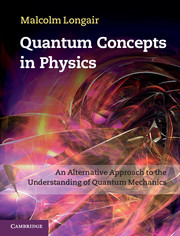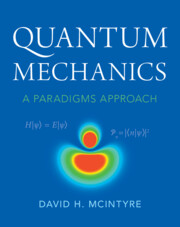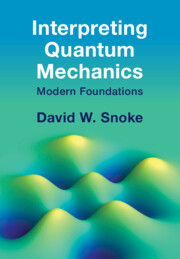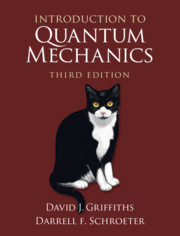Quantum Concepts in Physics
Written for advanced undergraduates, physicists, and historians and philosophers of physics, this book tells the story of the development of our understanding of quantum phenomena through the extraordinary years of the first three decades of the twentieth century. Rather than following the standard axiomatic approach, this book adopts a historical perspective, explaining clearly and authoritatively how pioneers such as Heisenberg, Schrodinger, Pauli and Dirac developed the fundamentals of quantum mechanics and merged them into a coherent theory, and why the mathematical infrastructure of quantum mechanics has to be as complex as it is. The author creates a compelling narrative, providing a remarkable example of how physics and mathematics work in practice. The book encourages an enhanced appreciation of the interaction between mathematics, theory and experiment, helping the reader gain a deeper understanding of the development and content of quantum mechanics than any other text at this level.
- Explains how pioneers such as Heisenberg, Schrodinger, Pauli and Dirac developed a coherent theory of quantum mechanics
- First book on quantum mechanics to avoid an axiomatic approach – it explains where the axioms in quantum mechanics come from and why the mathematical infrastructure has to be as complicated as it is
- Reveals much more about the roots of quantum mechanics than standard books, leading to a deepened understanding of the content of quantum mechanics and the parallel development of theory and experimental discovery
Reviews & endorsements
'… a beautiful book … should be included in any respectable physics library.' Daniela Dragoman, Optics and Photonics News
Product details
January 2013Hardback
9781107017092
459 pages
249 × 191 × 23 mm
1.1kg
77 b/w illus. 4 tables
Available
Table of Contents
- Part I. The Discovery of Quanta:
- 1. Physics and theoretical physics in 1895
- 2. Planck and black-body radiation
- 3. Einstein and quanta, 1900–1911
- Part II. The Old Quantum Theory:
- 4. The Bohr model of the hydrogen atom
- 5. Sommerfield and Ehrenfest – generalising the Bohr model
- 6. Einstein coefficients, Bohr's correspondence principle and the first selection rules
- 7. Understanding atomic spectra – additional quantum numbers
- 8. Bohr's model of the periodic table and the origin of spin
- 9. The wave-particle duality
- Part III. The Discovery of Quantum Mechanics
- 10. The collapse of the old quantum theory and the seeds of its regeneration
- 11. The Heisenberg breakthrough
- 12. Matrix mechanics
- 13. Dirac's quantum mechanics
- 14. Schrödinger and wave mechanics
- 15. Reconciling matrix and wave mechanics
- 16. Spin and quantum statistics
- 17. The interpretation of quantum mechanics
- 18. The aftermath
- 19. Epilogue
- Indices.






